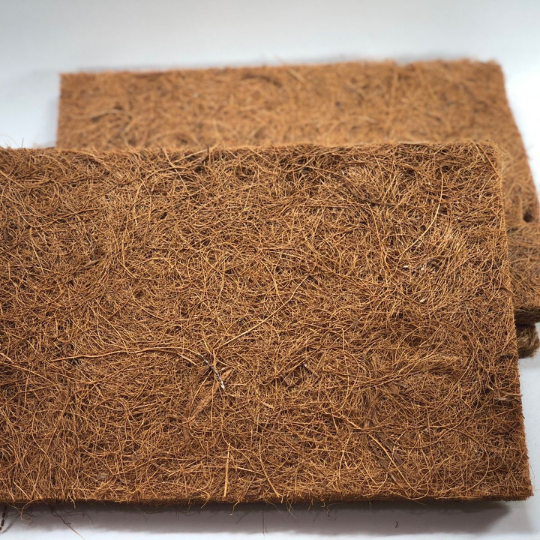
Coir chips are a highly valuable product widely used in agriculture, horticulture, and landscaping. Derived from broken and dried coconut fibers, coir chip offer a robust structure and excellent aeration. These qualities make coir chip a popular material for improving soil quality and providing optimal conditions for plant growth. This article will discuss the benefits and advantages of using coir chips in various applications and their positive environmental impact.
Benefits of Coir Chips
Coir chips offer numerous benefits for plant growth. Their porous physical structure allows for excellent water drainage, reducing the risk of waterlogging and salt accumulation in the soil. Coir chips can also retain soil moisture, ensuring that plants have access to water even in dry conditions. The ability of coir chips to absorb water and gradually release it into the soil makes them an ideal choice for maintaining soil moisture over extended periods.
Additionally, coir chips are highly resistant to decomposition, allowing for long-term use without frequent replacement. This durability provides economic and practical advantages when using coir chips as a growing medium.

Advantages of Coir Chips
Coir chips offer several significant advantages. In addition to their resistance to decomposition, coir chips are environmentally friendly and non-toxic. This ensures that coir chips are safe to use without leaving harmful residues in the environment or posing health risks to humans.
Coir chips also have a neutral pH, suitable for most plants, which simplifies their use without requiring major adjustments to existing soil conditions. Furthermore, their lightweight nature makes coir chips easy to apply in various settings, whether in pots or gardens.
Use of Coir Chips in Agriculture and Horticulture
Coir chips are widely used in agriculture and horticulture due to their ability to improve soil conditions and support plant growth. In agriculture, coir chips are often used as a soil medium, particularly for growing tomatoes, peppers, papayas, and various fruits. Mixing coir chips with soil helps improve soil structure, increase aeration, and retain the moisture needed for plant growth.
In horticulture, coir chips are frequently used to create substrates for ornamental plants. Their moisture retention, good drainage, and resistance to decomposition make coir chips an ideal material for creating optimal conditions for the growth of ornamental plants.
Positive Environmental Impact
In addition to benefiting plant growth, the use of coir chips positively impacts the environment. The widespread use of coir chips can help reduce the reliance on chemical inputs in agriculture, as they can absorb essential nutrients, reducing the need for chemical fertilizers.
Moreover, coir chips are made from agricultural waste, specifically coconut fibers, which helps reduce the amount of waste generated and adds value to this byproduct. This supports the concept of recycling and using waste as a valuable resource. Therefore, the use of coir chips is not only beneficial for farmers and plant growth but also has a positive impact on the environment as a whole.
Conclusion
With their various benefits and advantages, coir chips have proven to be a highly valuable material in agriculture, horticulture, and landscaping. Their ability to improve soil quality, support plant growth, and provide positive environmental impacts makes coir chips an excellent choice for sustainable farming and gardening. Consequently, using coir chips can yield better results while maintaining environmental sustainability.
In conclusion, if you are eager to delve deeper into the details of coir products, feel free to explore our website at https://cocopeatcocofiberaustralia.com/. Additionally, for direct and instant connection with our team, you can reach us through the following WhatsApp link https://wa.me/61478797017. We look forward to providing you with the information and assistance you need.
